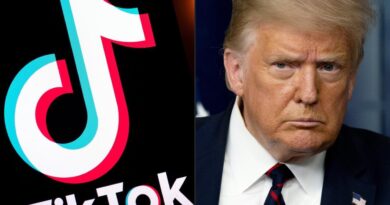U.S Denies Allegations of USAID Funding Boko Haram
The United States Ambassador to Nigeria, Richard Mills, has strongly refuted claims that the U.S. government is funding the Boko Haram terrorist group. He made this clarification on Wednesday night following a two-hour meeting with the Nigeria Governors’ Forum (NGF) in Abuja.
Ambassador Mills also addressed concerns regarding the U.S. government’s decision under President Donald Trump’s administration to reevaluate foreign aid, including assistance through the United States Agency for International Development (USAID) to Nigeria and other developing nations.
The meeting was attended by 18 state governors, including NGF Chairman and Kwara State Governor AbdulRahman AbdulRazaq, his deputy, Governor Seyi Makinde of Oyo State, as well as governors from Lagos, Benue, Nasarawa, Plateau, Enugu, Anambra, Jigawa, Sokoto, Abia, Akwa Ibom, Bauchi, Niger, Ogun, Gombe, Bayelsa, Kano, and Ebonyi. Additionally, four deputy governors from Kaduna, Katsina, Yobe, and Zamfara were also present.
The discussion came just six hours after the Nigerian Senate passed a motion to investigate allegations made by U.S. Republican Congressman Scott Perry, who claimed that USAID was a significant financial supporter of Boko Haram. The terrorist group has been responsible for over 50,000 deaths and has displaced millions in northeastern Nigeria.
Dismissing the claims, Ambassador Mills reaffirmed the United States’ commitment to combating Boko Haram and supporting Nigeria’s security efforts. He stated:
“There is no stronger ally of Nigeria in condemning Boko Haram’s acts of violence and disregard for human life than the United States. Since 2013, we have officially designated Boko Haram as a foreign terrorist organisation. This classification was implemented to prevent the group from transferring assets through the U.S., enabling the arrest and prosecution of members and facilitating cooperative investigations with the Nigerian government.”
He further assured that strict policies are in place to ensure that no U.S. assistance—whether from USAID, the Department of Defence, or the State Department—reaches terrorist organisations.
“There is absolutely no evidence that any of our aid has been diverted to Boko Haram. If such evidence were to emerge, we would act immediately, in coordination with our Nigerian partners, to investigate and address it,” he stated.
RELATED: The United States Exposed as a sponsor for Boko Haram.
Mills emphasised that the U.S. remains committed to working with Nigeria to eradicate Boko Haram and bring stability to affected regions.
Mills noted that the U.S. Embassy is eager to help develop the capacity of Nigerian states and local government authorities, especially following a recent Supreme Court decision expected to grant local governments increased authority and financial responsibility. He stressed that, based on America’s federal system experience, governance is most effective when it is closer to the people.
Addressing concerns regarding the U.S. decision to cut back foreign aid, Mills explained that no aid has been cut yet. Instead, the new administration has instituted a 90-day review period to assess the effectiveness of U.S. assistance programs.
“This is not about ending foreign aid to Nigeria or other partner nations,” he explained. “It is about ensuring that our assistance aligns with U.S. interests and is deployed effectively.”
He pointed out that waivers exist for life-saving humanitarian aid, including assistance for HIV treatment, maternal and child nutrition, and internally displaced persons. The future of U.S. assistance will become clearer after the 90-day assessment period.
Following the meeting, NGF Chairman Governor AbdulRahman AbdulRazaq expressed the Forum’s willingness to strengthen cooperation with the U.S. in these shared areas. The governors emphasised the importance of states in driving Nigeria’s economic and social development.
In addition, the Forum received a briefing from the Minister of Women Affairs on the nationwide expansion of the Nigeria For Women Project (NFWP), which initially began in six states. The project aims to empower women economically through Women Affinity Groups (WAGs), livelihood grants, and capacity-building initiatives, aligning with the national goal of lifting 100 million Nigerians out of poverty.
The NGF also engaged with the Conference of Speakers of State Legislatures of Nigeria (COSLON) to discuss key governance issues, including enhanced collaboration between state legislatures and the NGF, as well as the ongoing constitutional review process. COSLON informed the governors about its partnership with Development Finance Institutions (DFIs) to digitise State Houses of Assembly, aiming to enhance legislative efficiency and transparency.
The governors reaffirmed their commitment to working closely with state legislatures to drive governance reforms and improve policy implementation at the subnational level.
Content Credit| This article was originally posted by https://tribuneonlineng.com/
Picture Credit | https://businessmetricsng.com/




